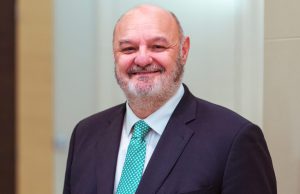The collective awareness of the profound social but also economic implications of climate change is now irreversible. A recent study by Oxford Economics estimates that global GDP could fall by between 2.5 and 7.5 per cent by 2050 if global temperatures rise by 2° C above pre-industrial levels by then; the World Bank warns that the same global warming could push 100 million people into poverty as early as 2030; and the World Economic Forum's benchmark global risks perception survey has seen how, in the last decade, purely economic risks have been displaced by environmental risks.
The World Climate Summit currently being held in Madrid will undoubtedly be a great opportunity to make these and other consequences even more visible, and to rally more organisations, individuals and companies to make a net positive, urgent and collaborative contribution to the transition towards a more sustainable economy. In this context, however, there is incontrovertible evidence: pivoting towards a more sustainable economic model will require large investments by all economic agents - from the largest multinationals to the smallest SME, whatever their field of activity - and the financing of these investments cannot be assumed by the organisations established to combat climate change. It is worth noting, for example, that in the European Union alone the decarbonisation of the economy by 2030 will require annual investments in the order of €2.5 trillion.
Faced with this reality, the financial sector has taken a step forward and explicitly assumed its essential role not only as a financier of sustainable transition, but also as one of the sectors driving this transition, as shown by the groundbreaking Katowice Commitment and more recently endorsed by the six Principles for Responsible Banking and the United Nations Principles for Sustainable Insurance. In this context, and aware that the Spanish productive fabric requires an even more comprehensive approach due to the high presence of SMEs -still today, the segment of companies that is having the hardest time understanding the advantages and transitioning towards more sustainable models-, in 2019 and prior to COP25, the employers' associations representing Spain's banking, savings banks, insurance companies, collective investment institutions and pension funds, and credit cooperatives have launched Finresp: the Spanish Centre for Responsible and Sustainable Finance.
Although we sometimes correlate the contribution of financial agents to mitigating climate change with sustainable finance, in reality this also covers areas such as investment or insurance, which is directly linked to environmental risk, be it civil liability or natural disaster liability.
Transmission belt
Since its inception, the centre has also joined the International Network of Financial Centres for Sustainability FC4S, which not only connects us with the good practices in responsible and sustainable finance of the other 27 centres established since 2017 throughout the world, but is also a transmission belt for Finresp and Spain to set themselves up as benchmarks for how to contribute to the sustainable transition of the productive fabric, especially of small and medium-sized enterprises.
Over the coming days, Finresp will have the opportunity to participate in the World Climate Summit to further enhance the explicitness and visibility of its commitment and that of the sectors that promote it to contribute to climate change mitigation and social transformation, and above all to establish itself as a loyal and committed partner of government and business: the other two sides of the triangle that is essential if the fight against this change, social but also economic, is to be truly effective and transformative. But, especially after COP25, we will continue to work to turn the Spanish financial sector into an agent of change in the transition towards a new sustainable paradigm, aware that this is a long-distance race and not a sprint.
Juan Carlos Delriu, director of Strategic Planning of AEB
Antonio Romero, corporate director of Associative Services, Control and Resources of CECA
Elisa Ricón, Inverco's
Managing Director Cristina Freijanes, general secretary for UNACC
Mirenchu del Valle, general secretary for Unespa













